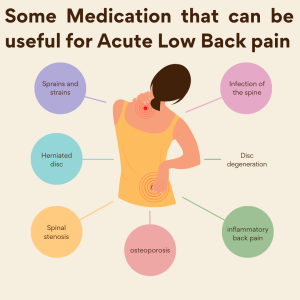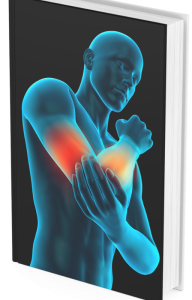
Medication to take in acute back pain?
Overview of Medication Options for Acute Low Back Pain
It is often asked what the best medication is for low back pain as it is a condition that affects millions of people each year across the globe. It can interfere with one’s ability to go about everyday life and activities, causing significant issues in even seemingly simple tasks like bending over to tie shoelaces or lifting groceries out of the car. These persistent symptoms can be challenging to manage,especially if away or unable to visit an Osteopath.
In this article, I will explore different medication options which may provide some much needed respite from back pain symptoms helping you survive when other help is not available, and without resorting to long-term opioid use.
I will take a look at various medications for low back pain and discuss their associated benefits and risks involved in using them as treatment so readers can make an informed decision when considering what option best suits their needs regarding acute low back pain relief.
Medication is a common and often helpful treatment in giving temporary relief for acute low back pain and can provide a certain amount of short-term relief. Common medications include non-steroidal anti-inflammatory drugs (NSAIDs), such as ibuprofen or naproxen, muscle relaxants, such as cyclobenzaprine or diazepam, and narcotic painkillers, such as Tramadol or oxycodone. Many of these medications can be prescribed by a doctor, while some are available over the counter.
There are others as well including such medicaments as tiger balm, ibuleive gel, feldene patches all with variable success rates.
Benefits and Risks of Medication Treatment
One potential solution for relief of acute low back pain is medication treatment. Medication treatment can provide transitory relief and is generally considered to be safe and effective in managing symptoms associated with acute low back pain. Looking at the evidence though it does seem that NSAIDS (ibuprofen like), give only a mild improvement over placebo
Common medications used to treat acute low back pain include over-the-counter non-steroidal anti-inflammatory drugs (NSAIDs), such as ibuprofen and naproxen. These drugs may help take the edge of the pain, but remember it does nothing against the cause of the inflammation. Ibuprofen cant be taken if you are suffering from asthma as this drug can aggravate it. The worse problem is that it can cause hyperacidity and lead to stomach erosion and in severe cases if taken longer term cause bleeds and is why these drugs are often given in conjunction with a stomach protector omeprazole being the most common. In other words one drug to potentially help your pain the other to prevent you from dying!
The opioid painkillers include the mild ones such as cocodamol, and at the more extreme end tramadol. Both have their problems the first one in being highly constipating, and in some causes diziness and drowsiness. Tramadol in many can induce nausea (takes your mind of the pain!)j, and also diziness. The latter can only be taken for a limited period as its getting on the way to acting similar to morphine.
The patches and gels are a good compromise although not as potent, as the ingested medication they hold the disting advantage of not having systemic side effects and apart from potential skin allergies are pretty safe. The not so good news is that they are not as potent as their ingested counterpart.
Tips for Finding the Right Medication
When considering medication as a form of relief for acute low back pain, it is important to keep in mind that a one-size-fits-all approach is not effective. Everyone experiences pain differently, and therefore the right medication for one individual may not be suitable for another. Peoples reaction to different medication also varies, and so a drug that works for one may not work for the other Therefore, it is important to speak to a healthcare professional and understand the available options, side effects, and potential interactions with other medications.
Conclusions
Overall, medication treatment can be a helpful tool in managing acute low back pain, as long as individuals are aware of the potential benefits and risks associated with the medications. It is crucial to talk to a healthcare provider about any concerns or questions regarding medication treatment for acute low back pain before beginning treatment.





